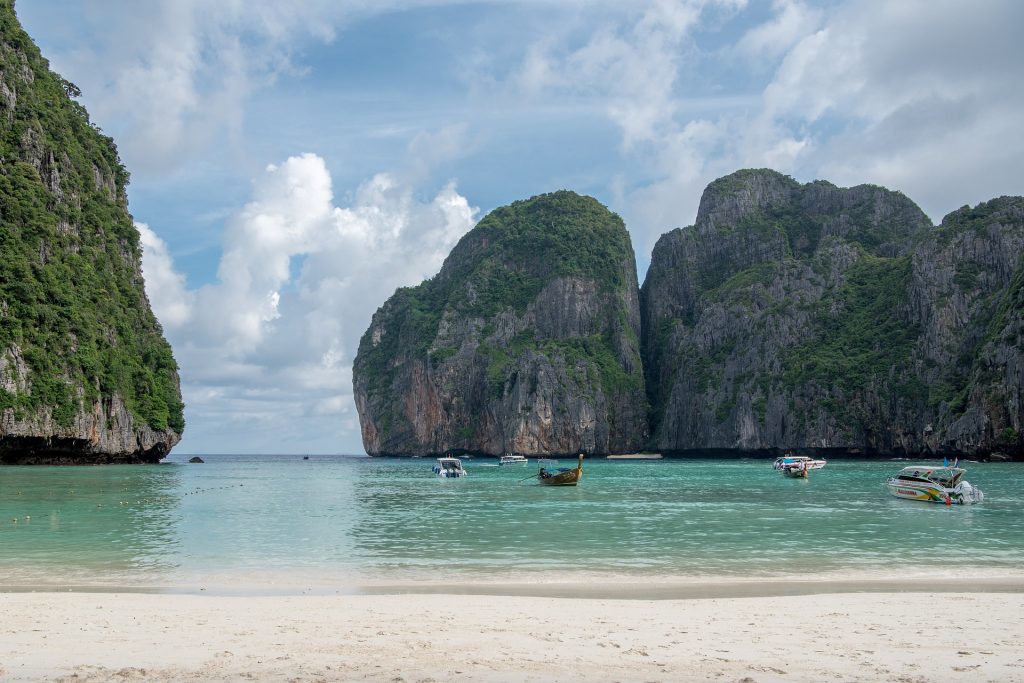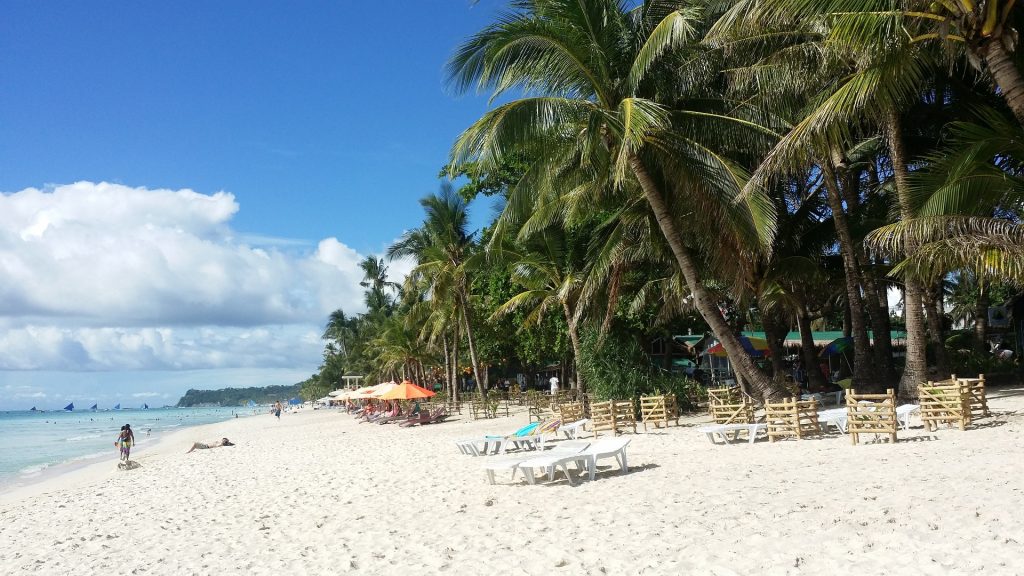Bali, Indonesia’s “Island of the Gods,” has captivated travelers for decades with its idyllic beaches, lush landscapes, and unique cultural heritage. Known for its iconic rice terraces, ancient temples, and vibrant festivals, Bali welcomes millions of tourists each year. However, the booming tourism industry has led to a number of challenges for the island and its residents. From environmental degradation to cultural shifts, locals are increasingly feeling the pressures of overtourism. Why are some Balinese now hoping for a more sustainable approach to tourism, and what can travelers do to help?
2. A Brief Overview of Bali
Bali, an island in Indonesia, is a paradise known for its beautiful beaches, active volcanoes, and terraced rice fields. It is home to unique Hindu-Balinese culture and traditions that have been preserved for centuries. Important sites include the Uluwatu Temple overlooking the ocean, the tranquil Tirta Empul water temple, and the bustling town of Ubud, known as Bali’s cultural heart.
Over the past few decades, Bali has experienced a dramatic increase in tourism, drawing over 6 million international visitors annually. While this has boosted the local economy, it has also placed immense strain on the island’s resources, environment, and community.
3. The Local Perspective
Tourism has become a double-edged sword for the people of Bali. While it brings economic benefits, many locals are concerned about the negative impact it’s having on their land, culture, and way of life. Here are some of the key issues they face:
- Environmental Strain: Bali’s natural resources are under serious threat. The increased demand for hotels, resorts, and water sports activities has led to deforestation, pollution, and depletion of water resources. The iconic rice terraces of Tegallalang and Jatiluwih require large amounts of water, but tourism’s heavy water usage is impacting local agriculture and water sources. Waste management is also a huge issue, with many beaches and rivers now littered with plastic waste.
- Overcrowding: Popular tourist destinations like Kuta, Seminyak, and Ubud are often overcrowded, particularly during peak season. This not only affects the experience for tourists but also makes it challenging for locals to go about their daily lives. Roads are frequently congested, and the once-peaceful temples and nature spots are often overrun with visitors, diminishing the tranquil atmosphere they are known for.
- Rising Cost of Living: Tourism has led to inflation and rising costs, making it increasingly difficult for locals to afford basic necessities. Housing prices have surged, as properties are often converted into short-term rentals or hotels for tourists. The shift from traditional agriculture to tourism has also changed the economic landscape, with some locals now struggling to keep up with the high cost of living on the island.
4. The Impact of Overtourism
The effects of overtourism on Bali extend beyond inconvenience; it is reshaping the island’s environment, culture, and society:
- Loss of Cultural Integrity: Bali’s rich cultural heritage is a major draw for tourists, but the constant influx of visitors can dilute traditional practices and customs. In popular areas, some traditional ceremonies are now held for tourist entertainment rather than for cultural or religious significance. This cultural commodification has led some Balinese to feel that their heritage is being reduced to a product rather than preserved as a way of life.
- Ecological Degradation: The high volume of tourists contributes to pollution and environmental damage. Beaches are becoming polluted, coral reefs are suffering from careless snorkeling and diving practices, and wildlife habitats are being destroyed to make way for new hotels and resorts. The waste produced by millions of visitors is overwhelming the island’s waste management system, leading to pollution in rivers, beaches, and forests.
- Dependence on Tourism: Bali’s economy has become overly reliant on tourism, which makes it vulnerable to fluctuations. During the COVID-19 pandemic, the dramatic drop in visitors left many without a stable income, highlighting the risks of depending solely on tourism. While tourism creates jobs, there is now a growing concern about finding a more balanced and sustainable approach that allows the community to thrive in the long term.
5. Respectful Travel Tips
If you’re planning to visit Bali, there are steps you can take to travel responsibly and minimize your impact on the local community and environment:
- Respect Local Customs and Traditions: Bali is a deeply spiritual place, with many customs and rituals that are central to daily life. Dress modestly, particularly when visiting temples, and always ask for permission before taking photos of ceremonies. Avoid stepping on offerings, which are small baskets of flowers and rice that locals place in public areas as part of their religious practice.
- Support Local Businesses: Choose locally-owned accommodations, restaurants, and tour operators to ensure that your money goes directly to the Balinese people. Seek out local markets, handicrafts, and food stalls instead of opting for international chains. This helps support the local economy and fosters a more authentic cultural experience.
- Be Mindful of Water Usage: Bali has a limited water supply, and the tourism industry consumes a significant amount of it. Limit your showers, avoid excessive laundry, and be mindful of water usage, especially in areas affected by drought.
- Reduce Waste: Bali has struggled with waste management due to the high volume of plastic waste generated by tourists. Bring a reusable water bottle and shopping bag, avoid single-use plastics, and take your trash with you whenever possible.
6. Ethical Considerations
Bali’s popularity has come at a significant cost to its environment and culture. As travelers, it’s essential to reflect on the ethical implications of our visits and how our presence may impact the community. Consider whether a trip to a less-traveled island or opting for eco-friendly activities can help reduce your footprint.
A shift toward more sustainable and mindful tourism can help Bali thrive while preserving its unique cultural identity. Supporting efforts to conserve Bali’s natural and cultural heritage, participating in community-led initiatives, and respecting local customs all contribute to a more responsible travel experience.
7. Alternatives to Bali
For travelers seeking a similar experience without contributing to Bali’s overtourism problem, there are alternative destinations in Indonesia and beyond:
- Lombok: Just east of Bali, Lombok offers beautiful beaches, waterfalls, and the majestic Mount Rinjani. It has a similar climate and culture but with far fewer tourists.
- Flores and Komodo Islands: Known for their rugged landscapes, traditional villages, and the famous Komodo dragons, these islands provide a unique adventure for those looking to explore Indonesia’s natural wonders.
- Sumba Island: Sumba boasts stunning beaches, traditional villages, and breathtaking landscapes, with fewer crowds and a more off-the-beaten-path experience.
8. Conclusion
Bali’s beauty and cultural richness have made it a top destination for travelers, but the impact of overtourism is taking its toll on the island and its people. As responsible travelers, it’s crucial to consider the effects of our actions and seek ways to minimize our footprint while exploring this iconic destination. By following sustainable practices—supporting local businesses, respecting customs, and reducing waste—we can help preserve Bali’s charm for future generations.


